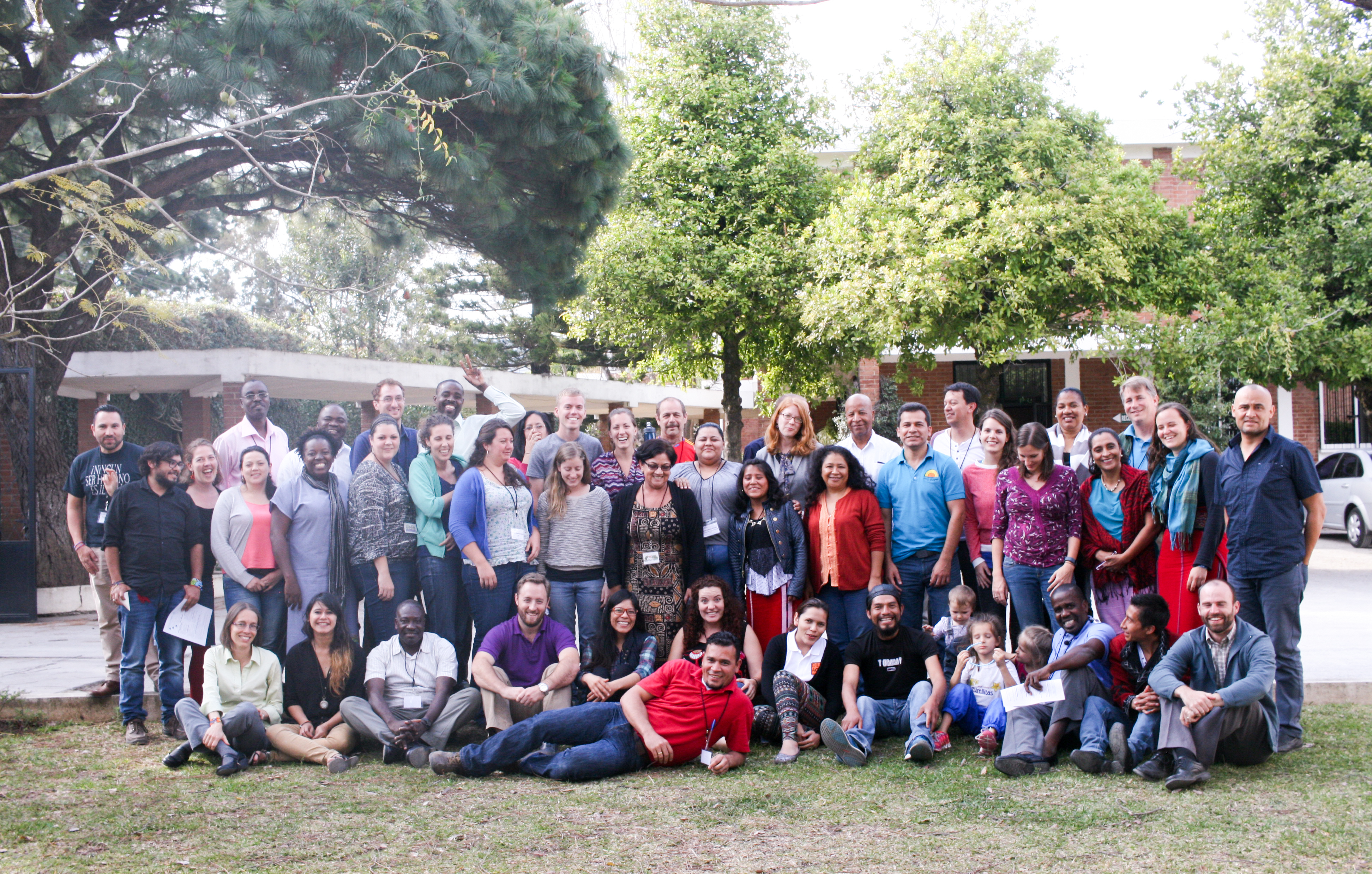
Anna Vogt is the MCC LACA Policy Analyst and Advocacy Support.
“A world of peace, a people with dignity, equality and equity with rights. Ancestral communities in resistance, full of hope. Strength lies in a collective identity and in the cooperation of all. Transparency, justice, equality. Love of neighbour. Land is life, without land, there is no life. The knowledge that there are many people in this network that is fighting for justice. Strength and energy to advocate and advance.” -Participant Phrases
- Anna Vogt/MCC
As participants placed their leaves on the tree and stated words of encouragement, the tree blossomed with life, energy flowing up from the roots of a long and powerful struggle for justice across the region. One thing was clear. Advocacy and enthusiasm for the work of social change is most definitely not dead in Latin America and the Caribbean, but rather alive and active, moving from the grassroots to the international. Organizations and communities are dedicated to advocating for justice, in a rich variety of ways: through grassroots organizing; legal accompaniment; documentation; network building; workshops; and much, much more.
In recognition of this work, MCC LACA invited partner organizations that actively work in advocacy throughout the region to come together in Guatemala to learn from each other, to share about their work and to help MCC understand how to better support advocacy.. Partners from El Salvador, México, Honduras, Colombia, Bolivia, Haití, Guatemala, and Nicaragua were all present to share, discuss and celebrate together.
- Anna Vogt/MCC
- Anna Vogt/MCC
It was a beautiful three days of laughter mixed with serious discussions about the realities of the region. On the first day, people naturally gravitated towards sitting together in country groups at meals but by Wed night, it was common to hear a mixture of Spanish, English and Creole coming from each table as connections formed and deepened.

Anna Vogt/MCC
What draws us together as a region? Common themes include: climate change, corruption, violence, economic and power concentrations and inequality, extractivism, organized crime, migration, social movements, young people and reforms. Despite the seriousness of these themes, one participant was quick to point out that we also all have a lot of hope: in the power of our work, our communities, and in the possibility of change.
- Anna Vogt/MCC
- Anna Vogt/MCC
- Anna Vogt/MCC
- Anna Vogt/MCC
- Anna Vogt/MCC
A highlight for everyone was Tuesday’s visit to the communities of Chuarrancho and San Buenaventura. The group listened to the Ancestral Authorities of Chuarrancho share how their communities had come together to successfully advocate and recover their lands and how San Buenaventura defended their territory against a proposed hydroelectric dam. After enjoying lunch together, community members of San Buenaventura performed songs they had composed about their defeat of the hydroelectric company. Conversations on the bus ride back to the encounter space were dynamic and centred on the role of creativity, art and identity within advocacy practices.
Wednesday was all about advocacy practices and tools, as we listened to a panel discussion between Colombia, Haiti and Guatemala and then broke into groups to discuss the tools that organizations have to do their work and what they lack. What is the role of MCC in supporting advocacy work? The depth and breadth of advocacy experience within partners is astounding; how can we be best be an active support for their work, as part of our identity as an organization that seeks just-peace?

Anna Vogt/MCC
The day closed with a talent show, another demonstration of the diversity and creativity within each one of the countries and organizations. There was dancing, special snacks, laughter, games, and music. The entire evening was an outpouring of energy that demonstrates that working for social justice is not simply a task of pain and hardship, but also a joyful blending of culture, tradition, pride, creativity, passion and love for communities and contexts.
As MCC LACA we are encouraged and excited to continue working and supporting partners throughout the region in their prophetic work of advocacy. There may be many challenges, but there are just as many possibilities. Advocacy is not something that only happens in the north or in the advocacy offices, but is daily practice throughout Latin America and the Caribbean. We are grateful for the chance to partner with such diverse organizations and to walk alongside their work of change.












